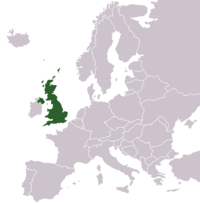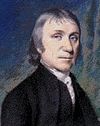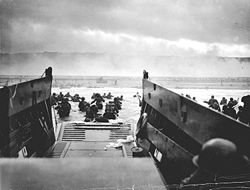- Portal:United Kingdom
-
- Wikipedia portals:
- Culture
- Geography
- Health
- History
- Mathematics
- Natural sciences
- People
- Philosophy
- Religion
- Society
- Technology
The United Kingdom Portal edit
The United Kingdom of Great Britain and Northern Ireland (usually shortened to the United Kingdom, the UK or – informally – Britain) is a sovereign state that lies to the north-west of the continent of Europe. It occupies all of the island of Great Britain and the north-east part of the island of Ireland, sharing a land border with the Republic of Ireland. The United Kingdom is bounded by the Atlantic Ocean, and its ancillary bodies of water, including the North Sea, the English Channel, the Celtic Sea, St George's Channel, and the Irish Sea. It is linked to France and Continental Europe by the Channel Tunnel.
The United Kingdom is a constitutional monarchy composed of four countries: England, Scotland, Wales and Northern Ireland. The current monarch is Queen Elizabeth II, who is also the Queen and Head of State of fifteen other Commonwealth Realms, including Canada, Australia, New Zealand and Jamaica. The Crown Dependencies of the Channel Islands and the Isle of Man form a federacy with the United Kingdom collectively known as the British Islands. The UK also has fourteen overseas territories, all remnants of the British Empire which at its height encompassed a quarter of the world's surface and population.
Although Britain was the foremost great power during the 19th century, and a superpower in the early 20th century, the economic cost of two world wars and the decline of its empire in the latter half of the 20th century diminished its status in global affairs. However, as a permanent member of the United Nations Security Council, a nuclear power, a member of the G8, the world's sixth largest economy, and having the fourth highest defence spending, the UK remains an important political, economic and military world power. It is a member of the European Union and the Commonwealth of Nations.
Featured articleeditHer Majesty's Theatre is a West End theatre, located in the Haymarket, in the City of Westminster. The present building was designed by Charles J. Phipps and was constructed in 1897 for actor-manager Herbert Beerbohm Tree, who established the Royal Academy of Dramatic Art at the theatre. In the early decades of the 20th century, Tree produced spectacular productions of Shakespeare and other classical works, and the theatre hosted premières by major playwrights such as George Bernard Shaw, J. M. Synge, Noël Coward and J. B. Priestley. Since World War I, the wide flat stage has made the theatre suitable for large-scale musical productions, and the theatre has specialised in hosting musicals. The theatre has been home to record-setting musical theatre runs, notably the World War I sensation Chu Chin Chow and the current production, Andrew Lloyd Webber's The Phantom of the Opera, which has played continuously at Her Majesty's since 1986. The theatre's capacity is 1,216 seats, and the building was Grade II* listed by English Heritage in January 1970. Really Useful Group Theatres has owned the theatre since 2000. (more...)
Featured biographyeditJoseph Priestley was an 18th-century British theologian, Dissenting clergyman, natural philosopher, educator, and political theorist who published over 150 works. He is usually credited with the discovery of oxygen gas, although Carl Wilhelm Scheele and Antoine Lavoisier also have such a claim. During his lifetime, Priestley's considerable scientific reputation rested on his invention of soda water, his writings on electricity, and his discovery of several "airs" (gases), the most famous being what Priestley dubbed "dephlogisticated air" (oxygen). However, Priestley's determination to reject what would become the chemical revolution and to cling to phlogiston theory eventually left him isolated within the scientific community. Priestley's science was integral to his theology, and he consistently tried to fuse Enlightenment rationalism with Christian theism. In his metaphysical texts, Priestley attempted to combine theism, materialism, and determinism, a project that has been called "audacious and original". The controversial nature of Priestley's publications combined with his outspoken support of the French Revolution aroused public and governmental suspicion; he was eventually forced to flee to the United States after a mob burned down his home and church in 1791. (more...)
Did you know... edit- ... that the Mary Rose was a Tudor period warship that sank during the Battle of the Solent in 1545 and was salvaged (pictured) by maritime archaeologists 437 years later?
- ... that Sir Hugh Norman-Walker was forced to decline the appointment of the Lieutenant Governor of the Isle of Man in 1973 because his wife would not take up the new post with him?
- ... that a skimmington, a custom in which victims were mocked and humiliated in a noisy public procession, occurred in England as late as 1917?
- ... that Princess Alice of the United Kingdom was married to Prince Louis of Hesse in an atmosphere described by Queen Victoria as "more of a funeral than a wedding"?
- ... that as a result of the Scarman report into the 1981 Brixton riots, the independent Police Complaints Authority was established in 1985?
- ... that the archaeological finds from Steeple Langford include a Bronze Age palstave and a Romano-British painted pebble?
- ... that Slade's Case has been called a "watershed" moment in English law?
Subportals editRelated portals editThings you can do editVisit the UK Wikipedians' notice board.
The noticeboard is the central forum for information and discussion on UK related editing.
Comment at Wikipedia:WikiProject Deletion sorting/United Kingdom.
This page lists deletion discussions on topics relating to the United Kingdom.Featured pictureeditPhoto credit: Unknown U.S. soldier The Battle of Normandy was fought in 1944 between the German forces occupying Western Europe and the invading Allied forces as part of the larger conflict of World War II. Sixty years later, the Normandy invasion, codenamed Operation OVERLORD, remains the largest seaborne invasion in history involving almost three million troops crossing the English Channel from England to Normandy in then German-occupied France.
In the news edit- November 22: Historic Scottish island castle wins the lottery
- November 20: Three-car accident in Birmingham, England leaves eight injured
- November 19: EU increases 2012 budget by two per cent
- November 12: Scottish police force apologises for double-murder by sex offender
- October 22: University of Wales to close down after 120 years
Categories edit- Geography
- England, Northern Ireland, Scotland, Wales, Overseas Territories and Crown Dependencies
- Cities, Counties, Towns
- Conservation, Languages, Transport, Visitor attractions
- Culture
- History, Literature, Religion
- Architecture, Entertainment, Museums, Performing arts
- British monarchy, British people
- Archaeology, Society, Science and technology
- Sport
- Media
- Politics
- Education, Foreign relations, Government, Health, Housing, Law, Law enforcement, Military
- United Kingdom stubs
- British people, British politicians, UK broadcasting, United Kingdom building and structure stubs, UK geography, UK government, UK history, UK organisations, UK rail, UK schools, UK universities
WikiProjects edit- UK geography
- UK subdivisions
- British Government
Area based (Subdivisions) Projects
- England
- Scotland
- Wales
- Derbyshire
- Greater Manchester
- London
- Cardiff
- Sheffield
- Yorkshire
- West Midlands
Subject Specific Projects
- Baronetcies
- Clans of Scotland
- Cricket
- Terry Pratchett's Discworld
- Football Clubs
- Sherlock Holmes
- British military history
- Peerage
Other UK-connected Wikipedias editWicipedia yn Gymraeg - Scots Wikipaedia - Wikipedia ann an Gàidhlig na h-Alba
Vicipéid as Gaeilge - Wikipedia Gaelg - Wikipedia Kernowek - Englisc WicipædiaWikimedia editPurge server cache Categories:- European portals
- Portals by country
Wikimedia Foundation. 2010.











